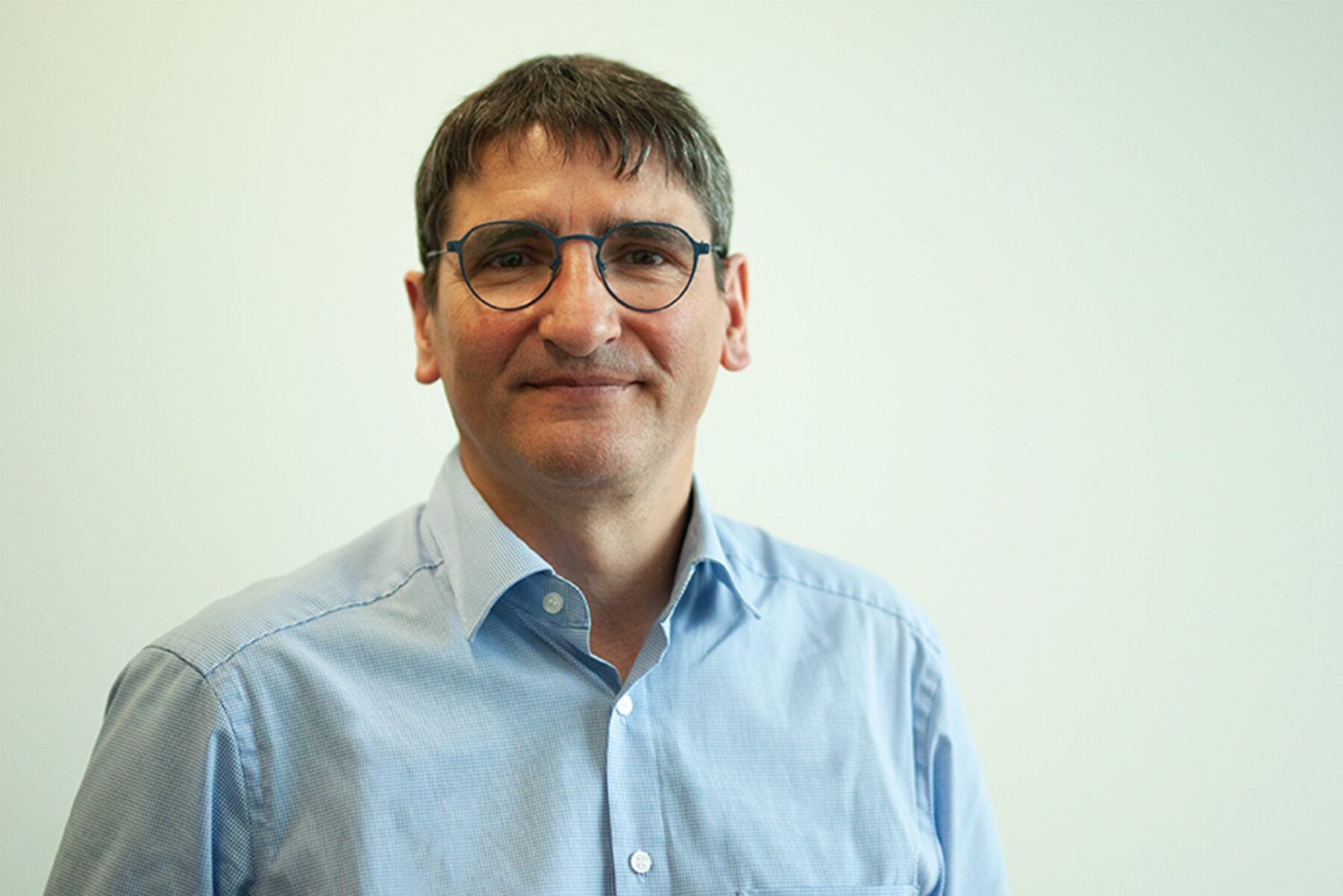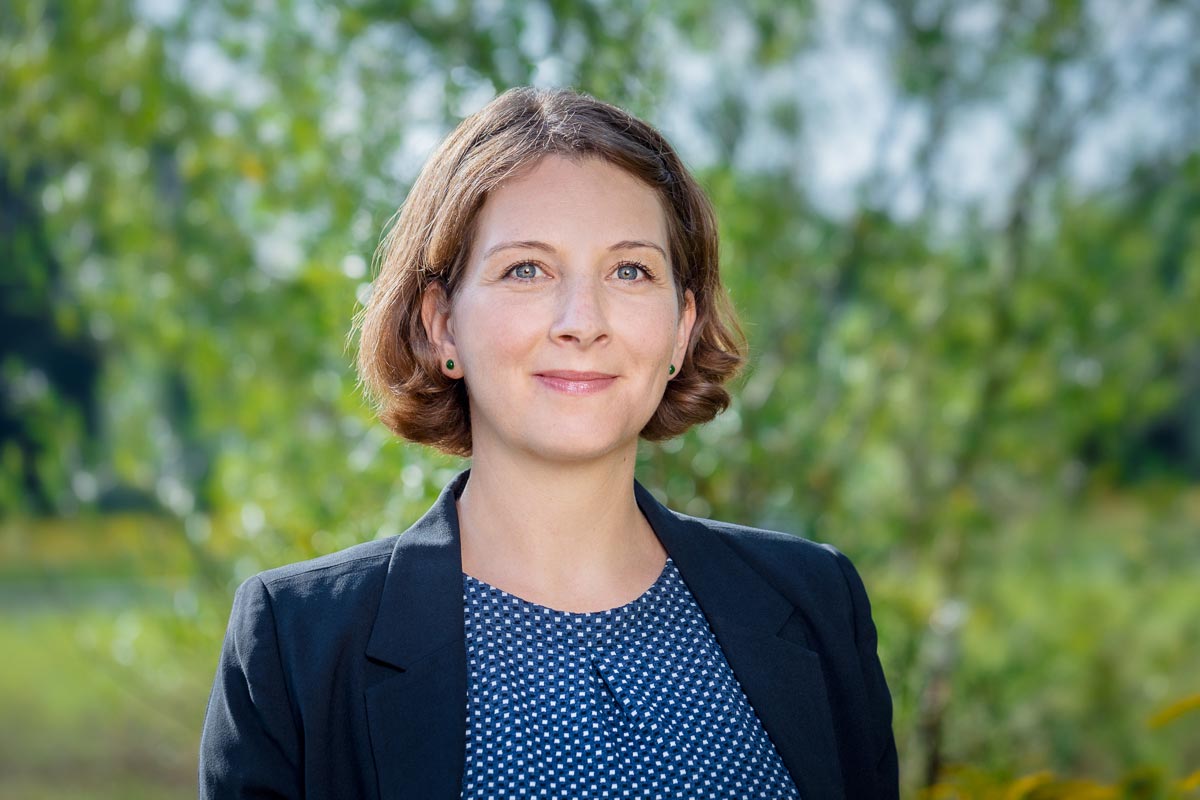
RIPAC-LABOR – a successful business preparing for a new phase
One of the biggest business success stories at the Potsdam Science Park has been RIPAC-LABOR. After more than 18 years at the helm, successful founder and entrepreneur Dagmar Köhler-Repp has passed the mantle to Heiko Rüdiger, a veteran executive who has plans to give the company a stronger international presence, especially now that it’s part of Dopharma.
Potsdam Science Park. It’s still a tranquil morning. In a patch of land next to the Institute for Computer Science, fields and meadows stretch off into the distance. The occasional worm or sand lizard wends its way through the grass. A steady stream of students will be coming in on foot or by bicycle from 9-10 a.m. But this corner of the Park is going to look very different soon. Foundations are being put down for what will eventually form a Technology Campus: Potsdam Science Park’s largest ever expansion, with 15 new buildings over 10 hectares. One of these is for a company that had its earliest beginnings right here in the Park: RIPAC-LABOR, one of the Potsdam Science Park’s biggest success stories.
RIPAC-LABOR: an all-Potsdam Golm success story
Plans are already in full flow for the site, with RIPAC-LABOR’s new headquarters scheduled to be completed in 2023. Head count is expected to grow to 100 when they move in, an ambitious target for a firm founded by Dagmar Köhler-Repp in 2003 and that currently only employs around 40. RIPAC-LABOR managed to find a niche market the big players had overlooked: herd-specific vaccines for farm animals. These vaccines are generally produced by a manual process that looks nothing like the way standard vaccines are manufactured. The latter usually take 8-10 years from development to mass marketing, thanks to complex authorization procedures. Herd-specific vaccines offer a much faster path; RIPAC-LABOR can produce a herd-specific vaccine in 8-10 weeks. Samples are brought in from sick animals, then pathogens are isolated from them, inactivated and used to produce a targeted vaccine. The quid pro quo is that herd-specific vaccines are only allowed to be used on the actual animal herd the pathogens came from. Quick-acting and targeted, they can help to minimize the use of antibiotics.

A female founder, a heady growth trajectory
From the outset, RIPAC-LABOR was able to perfect this process and grow its customer base. “We had a great team of scientists from the beginning. The challenge was just to turn these out-and-out scientists into people who had an entrepreneur mentality”, Köhler-Repp told us back in 2020. She managed to build RIPAC-LABOR’s business out of nothing and make it succeed. Its initial focus on bacterial pathogens soon morphed into one also covering production of herd-specific vaccines from viruses. An expansion into veterinary diagnostics was matched by new processes and a pathogen bank that ended up covering 45,000 strains. These dizzying successes whetted the company’s appetite for partnering with others. Dagmar Köhler-Repp took the strategic step in 2017 of selling a 65% stake to Dopharma International BV in order to offer RIPAC-LABOR’s services more broadly across the European market.
Changing leadership, building a Europe-wide manufacturer
In the wake of this, the company embarked in a brand-new direction. This culminated in Köhler-Repp and Dopharma agreeing that the latter would acquire the firm’s remaining equity in 2021. There were changes at the top too: Heiko Rüdiger had already been in charge since late 2020. An experienced pharmaceutical manager, the veterinarily-trained Rüdiger had run a vaccine producer’s international operations for years and developed a speciality in animal health. His plans for RIPAC-LABOR are clear: building on its success with a stronger international position, optimized quality management, and responsiveness to current challenges. Rüdiger plans to take further what Ms. Köhler-Repp put in place: “I’ve got a lot of respect for what she has built here. RIPAC-LABOR really owes a lot to her, and we want to build on the great things she’s done and take it to the next level through integration with the Dopharma Group and serving the European market.”
What the future has in store
Ambitious plans – after all, RIPAC-LABOR has had nearly 19 successful years on the market already. Heiko Rüdiger sees the main opportunities as arising from joining a strong stable of businesses: “with its strong international focus, Dopharma has done well on the European market. That is a particular advantage for us given the fact there are now European rules in place for herd-specific vaccines since this year – before there used to be only country-specific ones. That means we can now access new growth markets. And being part of a group means we’ve already got the right contacts in order to do that.”
Born in Brandenburg state, of which Potsdam is the capital, Heiko Rüdiger worked in Dessau for nearly two decades. He sees a second focus in the shape of a new quality management structure. “The new herd-specific vaccine regulations set out stringent demands in terms of their production facilities – what’s known as Good Manufacturing Practice. The new law has a very direct bearing on what we do, so we have to put things in place.” He plans another expansion of the quality management department, which numbered 4 staff as of April 2022, and greater specialization for its staff. “Cross-cutting responsibilities make sense when you’re a small company. That’s why we used to have, say, people who were doing both manufacturing and diagnostics. But now we’re aiming for growth and compliance with these quality regulations, we can’t do that any more. We need people specializing in their roles.”

World-class expertise and a cosmopolitan setting – Potsdam Science Park underpins growth trajectories
With these kind of ambitions, Potsdam Science Park was the obvious choice. As Heiko Rüdiger puts it, “what we’re trying to achieve is to take what we do to the next level. Specialization is something we can only do if we have access to outstanding human talents. Our own track record tells us that the Potsdam Science Park is the perfect place to be for that. It’s an extremely attractive place in a university neighborhood, and transport access is easy. Its international outlook is the perfect fit for our plans.” Rüdiger looks to Potsdam Science Park for a future with more potential scientific networking: “biotechnology is a sector where we’re seeing new developments at a breakneck pace right now, lots of things are going to change. We want to be part of that and, for example, integrate new diagnostic approaches into what we do, so we can ride the wave of the biotechnology boom.”
It also helps that the native Brandenburger feels at home in the Potsdam Science Park: “I grew up in Fürstenwalde [in the same state], I’m a Brandenburger through and through.” The top man knows it for a fact: “it’s just like coming home.” Not too long from now, RIPAC-LABOR will be moving into a new home of its own, round the corner from the Institute for Computer Science, on a Technology Campus that is about to play host to a swathe of innovative companies and research outfits.
This blog and the projects of Standortmanagement Golm GmbH in Potsdam Science Park are funded by the European Regional Development Fund (ERDF) and the State of Brandenburg. Photo credit: Heiko Rüdiger © Standortmanagement Golm GmbH/Julia Hinz
Contact

Julia Hinz
Site marketing
julia.hinz@potsdam-sciencepark.de + 49 331 237 351 109